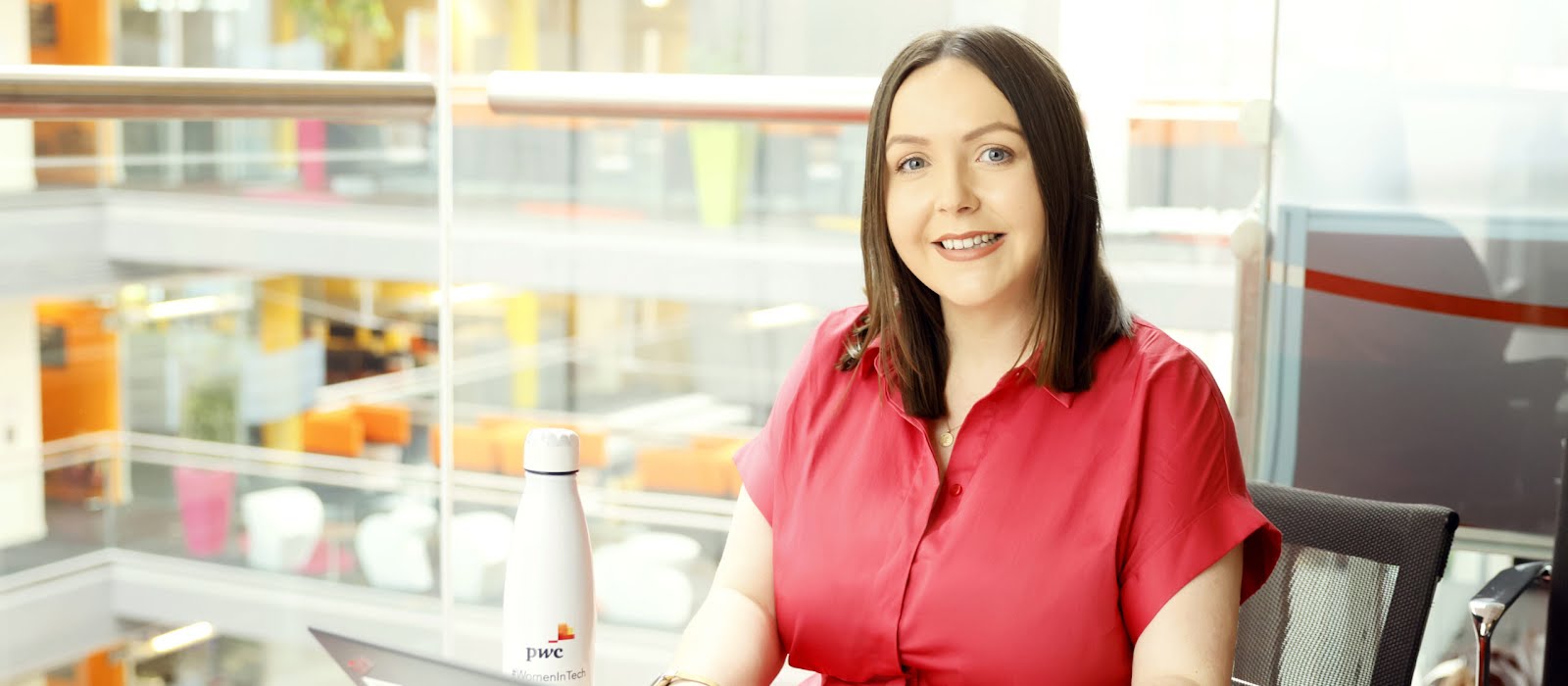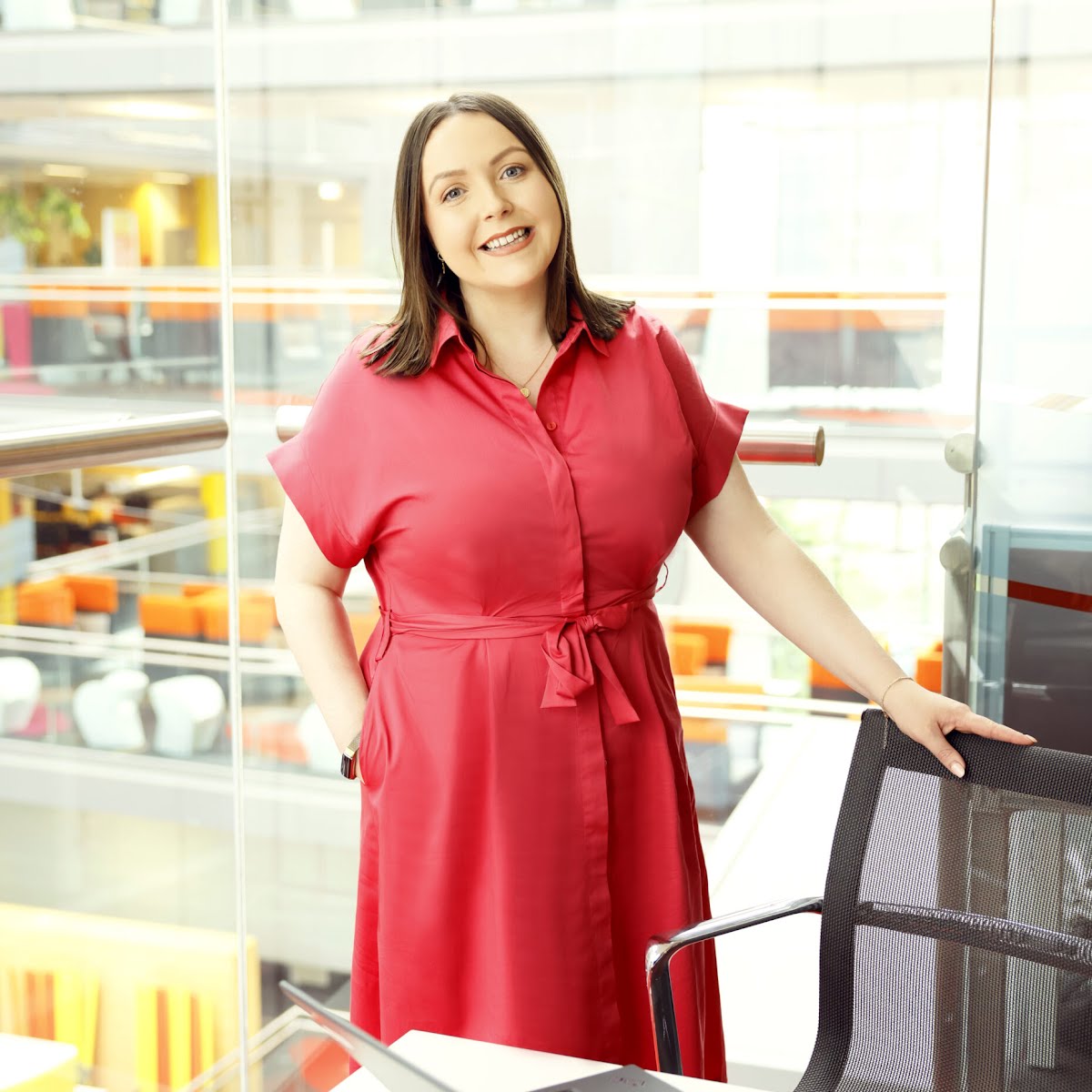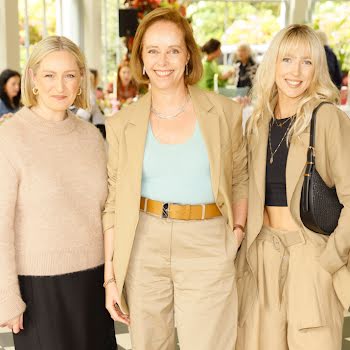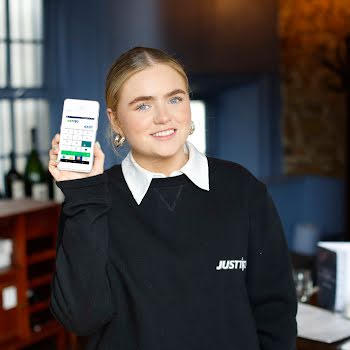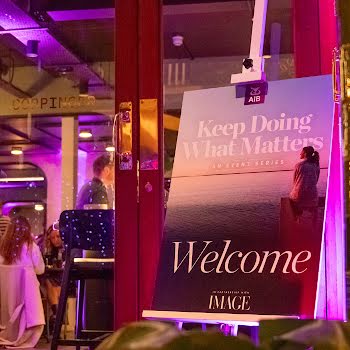
Inspiring the next generation of female tech leaders: PwC’s Kevina Cleary on breaking down the gender imbalance


From programmes to support women currently working in the tech sector to showing young girls how technology can open up many different paths for them, the organisation is committed to making sure everyone feels welcome in this space.
“Technology is a real accelerator for change, so I think it’s an important thing for everyone to be a part of,” Kevina Cleary explains. Her career in technology consulting with PwC has proven to her not only how this applies across industries, but also how important it is that technology is a space that’s open to everyone. As PwC’s Women in Tech Lead, she has been spearheading initiatives to support women in technology, not just within the organisation but further afield too.
“We have over 600 members in our Women in Tech network, including women and men from across the entire organisation,” she explains. “There’s a great culture and sense of community in the network. We have huge engagement and support, from graduates right up to leadership.” As well as networking events, they also run Tech 101 sessions, debunking any notion that technology is only for computer science professionals – it’s something we can all learn more about and utilise day-to-day. “Our aim is to inspire and upskill, and to ensure that women are attracted to roles in technology and want to progress their careers in this space.”
However, the aspect of the programme Kevina is most proud of, she explains, is the Tech We Can programme. Created by a UK charity called Tech She Can and delivered with Connecting Women in Technology (CWIT), it’s a programme that’s designed to inspire primary school children, particularly girls, to consider a future career in technology. “We have volunteers who go into classrooms of fourth to sixth class students, and they deliver a series of lessons that look at technology in relation to a particular hobby or interest that the children might have. It shows that technology is everywhere. It’s not just in the traditional roles where you expect – you can have a career in helping people and also have a career in technology, for example.”
She says it’s a really good way to show children that even if you don’t think technology is for them, it can overlap with a lot of other skills and sectors. Kevina gives an example of the very first lesson she taught through the programme. “I delivered a tech for space lesson, and at the beginning, I asked the students to put up their hand if they’d like to go to space. Some kids put their hands up, and some said, ‘no way’. So we talked about all the ways that technology helps people live in space.
“And at the end of the lesson, I asked the same question to see if anyone had changed their mind. One girl put up her hand and said, ‘I’m still not going to go to space, but I’d like to be part of creating the technology that helps you talk to people in space.’ In the lesson, they learned that it took 20 minutes for a voice message to go from Earth to space. So she wanted to make that faster, so that you could talk to people in space all the time. So by delivering that lesson, she was able to see where she could fit into that.”
While traditionally we might associate tech jobs with quite a specific set of skills, Kevina is keen to stress that this is no longer the case, and that it’s this narrow view of technology that has contributed to the current gender imbalance in the tech world. “Technology is not necessarily sitting in a room coding. To work in technology you need to know how to be a problem solver, be creative, and want to make things better.”
And with technology increasingly shaping the world around us, it’s more important than ever that we have a diverse cohort of people that shape it. “I’m a big believer of having diversity of thought in decision making,” Kevina says. “Multiple different perspectives, particularly when it comes to technology are important. Look at AI, for example which is already here and changing the business landscape and society as a whole, the industry needs to continuously evolve alongside it. Having diverse opinions inputting into new technologies is critical to ensuring that they are suitable for everyone.”
I think it’s vital that girls from a young age feel encouraged, welcomed, and that they’re needed in technology, which they are.

A particularly striking aspect of reaching this young demographic is that we don’t even know what kinds of tech jobs they’re likely to work in when they grow up, Kevina says, which makes it all the more important to have as wide a range of people included as possible. “What’s really interesting is that 60 per cent of children today will have jobs that don’t currently exist. Technology is going to play a huge part in that, so while we can’t necessarily show young girls those jobs yet, we can show them how technology can be an accelerator for change and that they can be a part of it. I think it’s vital that girls from a young age feel encouraged, welcomed, and that they’re needed in technology, which they are.”
They’ve reached over 800 students so far in Ireland, and have plans to bring it to a wider range of schools in the future. Alongside PwC’s other initiatives, it shows a multi-pronged approach to the issue of getting more women into tech, reaching both women in the workforce now and into the future. “It’s great to see organisations working together across the industry towards a shared goal. For example, through CWIT, we’re involved in a number of initiatives, including Accelerate with AI, where we’re working with 10 plus other organisations to ensure that AI is developed in a way that is inclusive for everyone. Similarly, through our membership with the 30% Club, we work with organisations to progress gender inclusion. There is a real appetite to take a hands-on approach to tackle the issues that we’re facing.”
In a world of constant change, business transformation is essential, and technology is the key enabler. PwC has the deep industry experience needed to guide reinvention. This is transformation. Human-led, tech-powered. To find out more visit pwc.ie/technology.
Photography: Kieran Harnett











